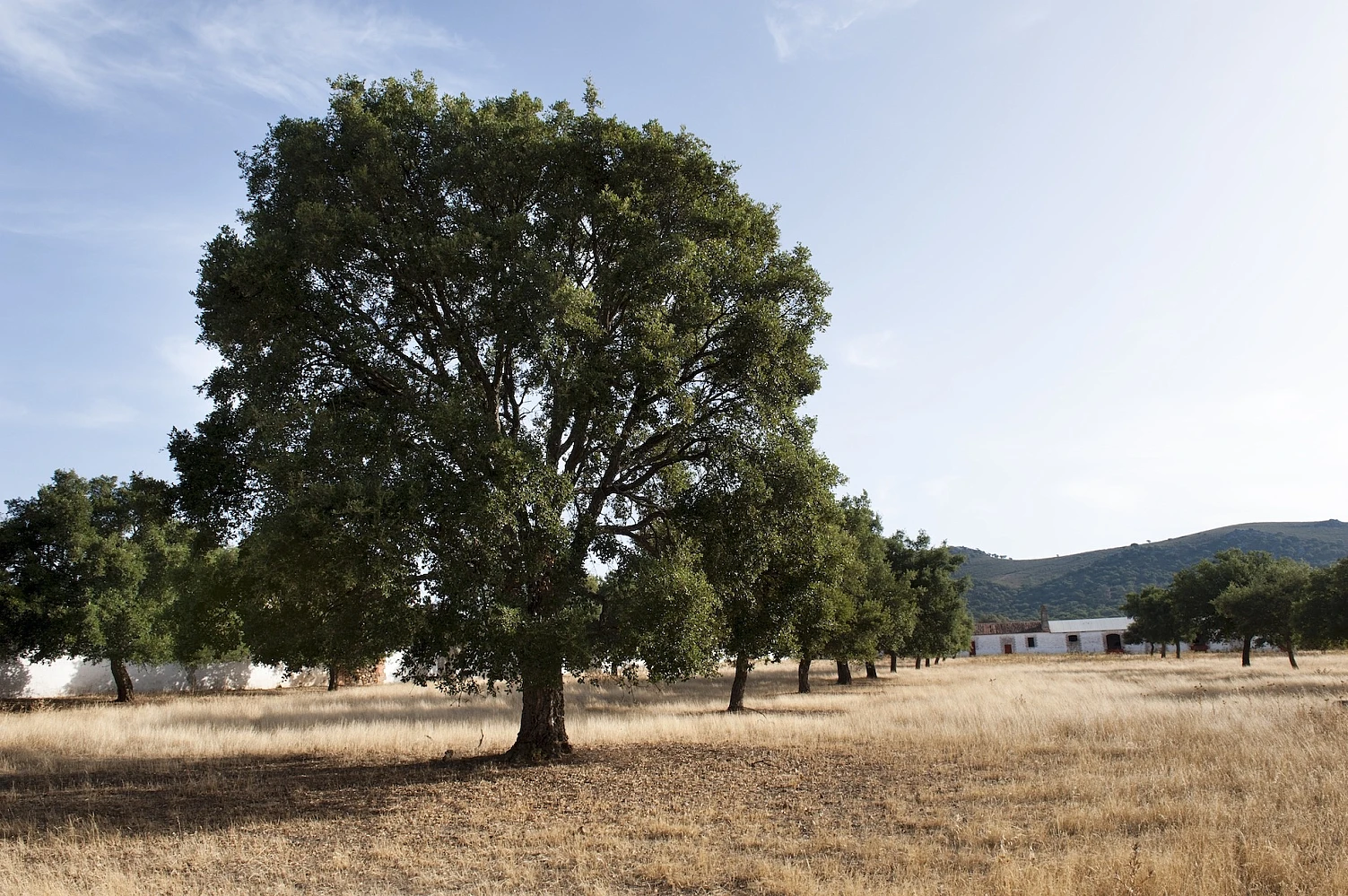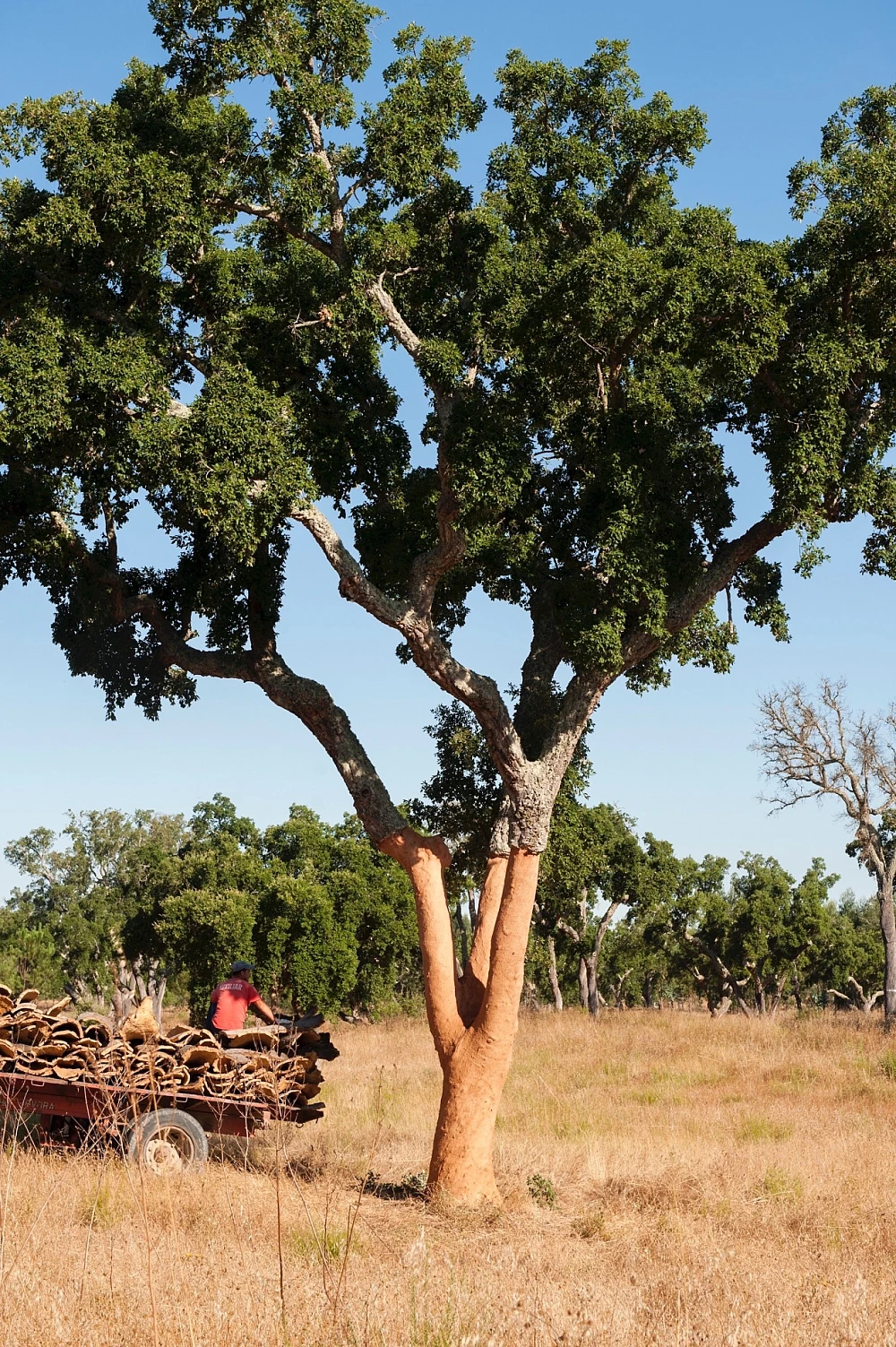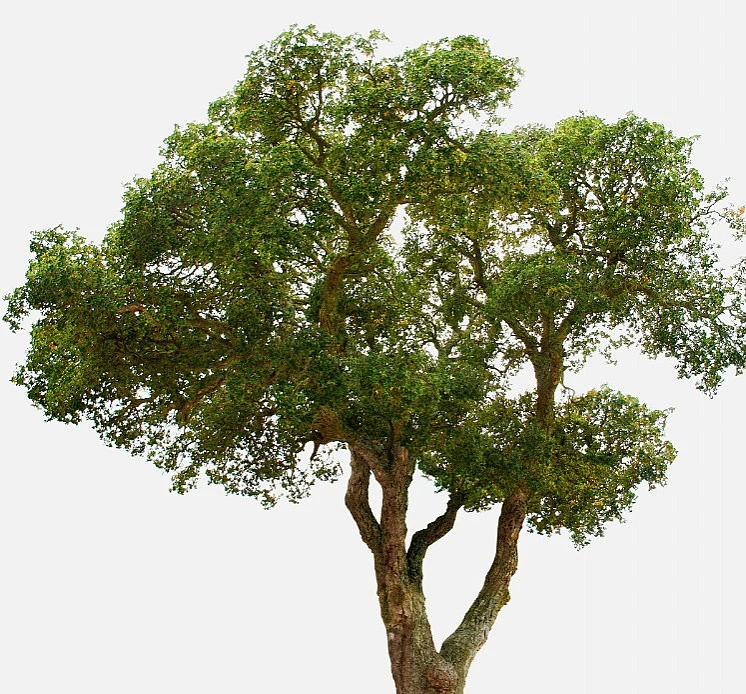- Sustainability
- Sustainability and the Cork Oak Forest
Sustainability and Montado The Natural Base of Cork
Cork oak forests, known as Montado, are ambassadors for sustainability and a driving force behind sustainable development. They play a decisive role in the planet's ecological balance, combat climate change and desertification and protect biodiversity.
The cork oak forest is a unique ecosystem, predominant in the southwest of the Iberian Peninsula, especially in Portugal, which supports biodiversity and guarantees the sustainability of natural resources. At Amorim Cork, sustainability is one of the fundamental pillars for the production of cork stoppers, and the cork oak forest is essential in this process.
In the Mediterranean Basin, cork oak forests cover an area of 2.1 million hectares. They are therefore considered a lung for this region. They are crucial to maintain ecological balance, and play a decisive role in creating a unique social, economic and cultural landscape.

With 34% of the world’s Cork Oak Forest Area
Portugal is responsible for around 45.6% of the world's cork production. The cork oak forest not only allows people to live off the land, but also sustains entire communities. The WWF estimates that around 100,000 people in Southern Europe and North Africa depend directly or indirectly on this ecosystem. The montados are therefore an essential socio-economic pillar, representing one of the best examples of the balance between environmental conservation and sustainable development.
This ecosystem is deeply interdependent on human action. Various activities, such as livestock farming, the cork industry and the wine sector, depend on the cultivation of the cork oak in Portugal's montado. The stripping process, one of the highest paid agricultural activities in the world, is both a unique cultural legacy, passed down from generation to generation, and a strategic economic activity for this region.
Cork oak: The world's most generous tree
At the heart of this forest is an ancient tree, characterized by its extraordinary resilience and adaptability: the cork oak. One of the most generous and resilient trees in the world, it is clear that no other tree has given so much and received so little.
With a well-developed root system, evergreen branches and a robust trunk armed with a protective layer of cork, cork oaks are perfectly adapted to the hot climate and arid soil of the Mediterranean basin. In fact, by promoting rain infiltration and preventing soil erosion, cork oak forests play an important role in regulating the hydrological cycle, protecting against erosion and combating desertification.
Cork oak forests also make a significant contribution to the quality of the air we breathe and to the future of the planet, being a powerful agent against climate change. A cork oak lives for up to 200 years. During its lifetime, it becomes a huge storehouse of CO2, reducing greenhouse gas emissions, the main cause of climate change.
“No other tree has given so much, requiring so little!”
Every year, cork oak forests retain 14 million tons of CO2, and this capacity also extends to cork products, including stoppers, which continue to perform this function. In addition, during the self-regeneration process after stripping, the tree's CO2 absorption capacity increases fivefold. Even after cork extraction, the cork oak continues to protect the environment, reinforcing its essential role in the cork oak forest and in sustainability.

In Portugal, which has the largest cork oak forest area in the world, cork oaks have been protected by law since the 13th century
This amazing tree is so respected and revered that in 2011 it was unanimously declared by the Portuguese Parliament Portugal’s National Tree, and in 2018, the majestic Whistler, the largest and oldest cork oak tree in the world, was chosen as European Tree of the Year.
